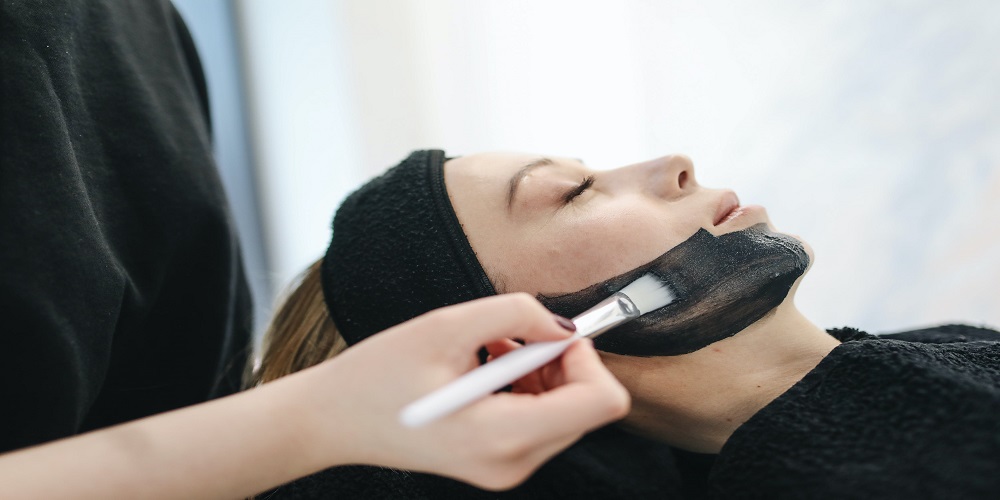Taking care of your skin is a vital part of your daily routine. Not all skincare products are the same. You are choosing the right ones for your skin type matters. This guide will help you find skincare products for your skin. We’ll cover five important things to think about. We’ll explain them in simple terms that are easy to understand.

1. Identify Your Skin Type
You must first know your skin type to choose the correct skincare products. Here’s a brief breakdown of the common skin types:
Oily Skin
When your skin is oily, it makes too much sebum. This makes your skin look shiny and can cause clogged pores. Look for products that are oil-free and designed to control excess oil production.
Dry Skin
Dry skin lacks moisture and can feel tight or flaky. Look for products that have hydrating ingredients like hyaluronic acid, glycerin, or shea butter to add water back.
Combination Skin
Combination skin has features of both oily and dry skin. The T-zone on the face is usually oily. Choose products for this skin type that address both areas. Use a gentle cleanser and a light moisturizer on your face.
Sensitive Skin
Sensitive skin is likely to get redness, irritation, and allergies. Select gentle, fragrance-free products on the skin, such as aloe vera or chamomile.
Normal Skin
Normal skin is often well-balanced and not too oily or dry. You can use many skincare products but remember your concerns.
2. Memorize Key Ingredients
Each skin type benefits from specific ingredients. For example:
AHA (Alpha Hydroxy Acid): AHA is excellent for exfoliating and improving skin texture. It’s often found in products that address fine lines, dullness, and sun damage.
Lactic Acid
Lactic acid is a gentle exfoliant suitable for sensitive skin. It helps with cell turnover and hydration.
Aloe Vera
Aloe vera is soothing and hydrating, making it an ideal choice for dry or sensitive skin types.
Shea Butter
Shea butter is a rich emollient that nourishes dry and flaky skin.
By knowing which ingredients work best for your skin type, you can make more informed choices when browsing product labels.
3. Read Labels
When you’re at the store or shopping online for skincare products, take the time to read the labels carefully. Look for keywords like “for sensitive skin,” “oil-free,” “hydration,” or “dermatologist-tested.” These indicators can guide you toward products formulated with your skin type in mind.
Also, be cautious of any potential irritants or allergens listed in the ingredients. For people who have sensitive skin, stay away from products that have fragrances, alcohol, or harsh chemicals. These can cause bad reactions.
4. Consult a Dermatologist
Consulting a dermatologist is wise if you’re uncertain about your skin type or have specific skin concerns. Dermatologists can provide a professional skin assessment and recommend tailored products or treatments. They can also help you address complex issues like acne, eczema, or rosacea.
Dermatologists can help you create a skincare routine that fits your needs. Make sure you know how often to apply sunscreen and use the correct products in the right order.
5. Take It Slow
When you want to start with new skincare products in your routine, patience is important. Here’s how to do it right:
Introduce One Product at a Time
Add one new product to your routine and monitor how your skin reacts. If you experience any adverse effects, you can pinpoint the culprit.
Give It Time
Allow a few weeks to see noticeable improvements or changes in your skin. Skincare products often take time to show their full effects.
Observe for Reactions
Pay close attention to signs of redness, itching, breakouts, or irritation. If any of these occur, discontinue use immediately.
Adding new products slowly helps your skincare routine be gentle and effective without stressing your skin.
Conclusion
Finding skincare products that suit your skin type is important to have healthy, glowing skin. Figure out your skin type to create a skincare routine for your unique needs. Learn about the ingredients that work for you. Read product labels and get help from a dermatologist if needed. Introduce new products slowly to make informed choices. You’ll be well on your way to radiant, healthy-looking skin with the right products
